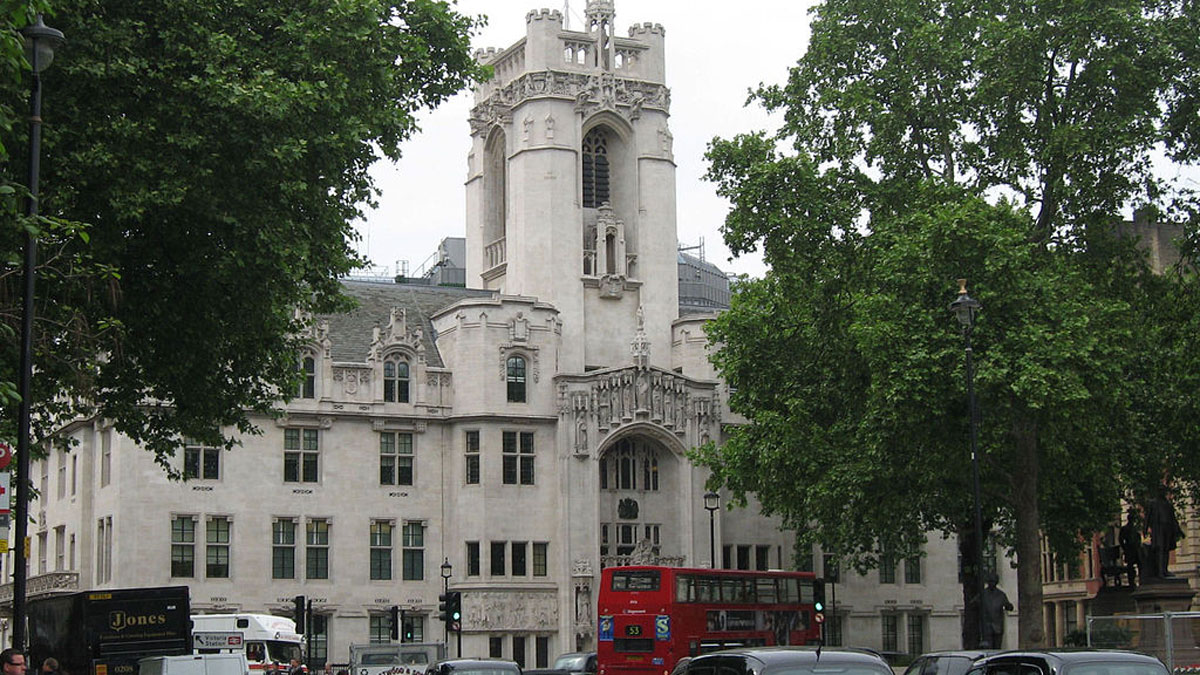Supreme Court backs foreign spouse income rule: What does it mean?
Judges uphold Theresa May's £18,600 threshold, but urge amendments to protect affected children

A free daily email with the biggest news stories of the day – and the best features from TheWeek.com
You are now subscribed
Your newsletter sign-up was successful
Supreme Court judges have backed a government policy requiring British citizens to earn at least £18,600 before they can bring a non-EU spouse into the UK.
Theresa May introduced the income threshold in 2012, when she was home secretary, saying it would cut immigration from outside Europe and reduce the chances of non-EU spouses claiming benefits.
However, campaigners argue the threshold, which rises to £22,400 if the spouse is accompanied by a child born outside the EU, is unduly harsh as it excludes 45 per cent of UK workers. In addition, the income of the non-European partner cannot be taken into consideration.
The Week
Escape your echo chamber. Get the facts behind the news, plus analysis from multiple perspectives.

Sign up for The Week's Free Newsletters
From our morning news briefing to a weekly Good News Newsletter, get the best of The Week delivered directly to your inbox.
From our morning news briefing to a weekly Good News Newsletter, get the best of The Week delivered directly to your inbox.
Today's decision follows an appeal by four families who say they have been separated by the legislation and while the judges have vindicated the policy, immigration rights campaigners have taken heart from the court's backing of changes to ensure that a child's legal right to a family life is protected.
What did the Supreme Court decide?
The justices acknowledged that the income rule "causes hardship to many thousands of couples, including some who are in no way to blame" and that the effects are "particularly harsh" on British citizens who met their partner while living abroad and now wish to return home.
However, although the threshold presents a "serious obstacle" to the enjoyment of a family life, the judges decided it did not constitute a violation of Article 8 of the European Convention on Human Rights, which protects the right to family life.
A free daily email with the biggest news stories of the day – and the best features from TheWeek.com
In cases where children and parents were at risk of separation, the court reminded the Home Office of its legal duty towards children and urged the government to allow for alternative sources of income to be taken into account to make up any shortfall.
However, the judges found that in principle, the income threshold is an "entirely legitimate" attempt to ensure foreign dependants are financially supported by their British partner rather than having recourse to the welfare system.
What was the response?
The ruling "is a blow to campaigners who say the rule has meant British families have faced a choice of separation or living in exile", says The Guardian.
However, Saira Grant, chief executive of the Joint Council for the Welfare of Immigrants, said that although the threshold remained in place, the ruling nonetheless constituted a "real victory".
She said: "The Supreme Court found that neither the rules nor the official guidance given by the Home Secretary to Home Office decision-makers are sufficient to protect the rights and interests of children.
"These are significant victories for families up and down the country."
-
 Political cartoons for February 16
Political cartoons for February 16Cartoons Monday’s political cartoons include President's Day, a valentine from the Epstein files, and more
-
 Regent Hong Kong: a tranquil haven with a prime waterfront spot
Regent Hong Kong: a tranquil haven with a prime waterfront spotThe Week Recommends The trendy hotel recently underwent an extensive two-year revamp
-
 The problem with diagnosing profound autism
The problem with diagnosing profound autismThe Explainer Experts are reconsidering the idea of autism as a spectrum, which could impact diagnoses and policy making for the condition